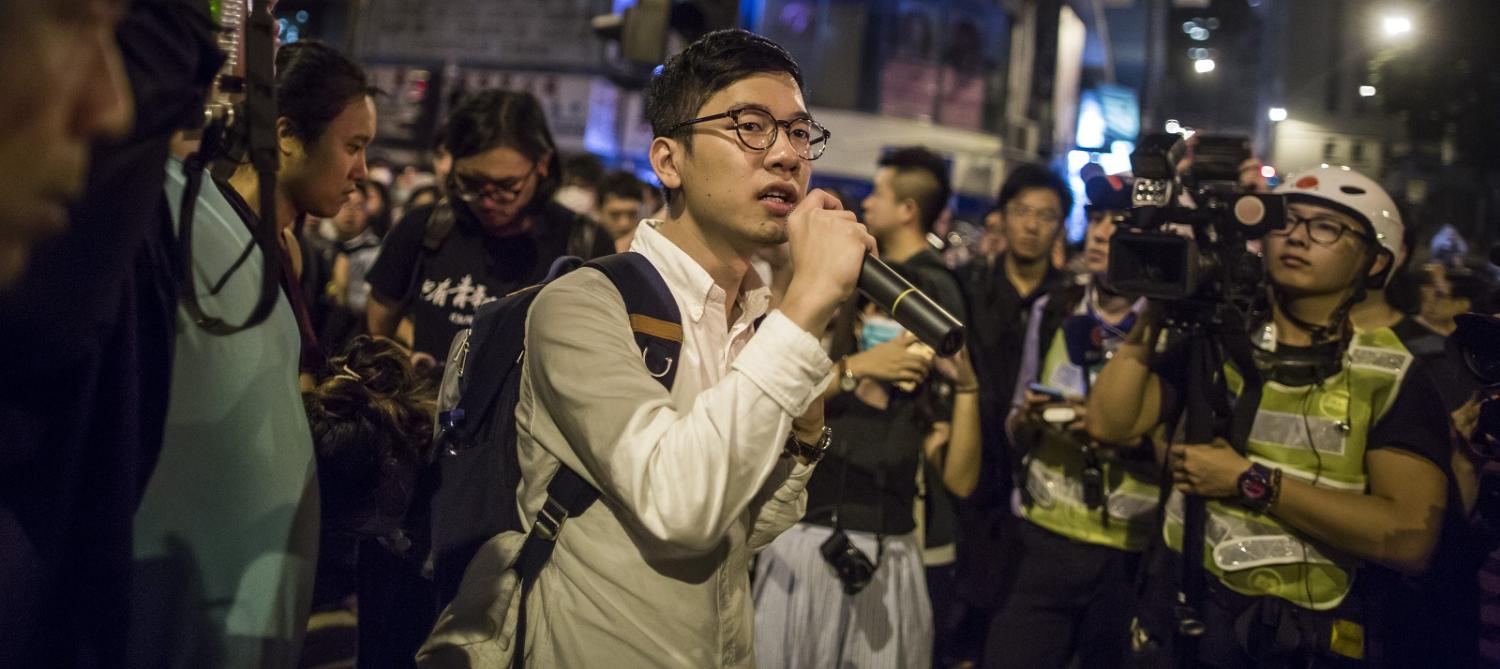Ben Bland arrived in Hong Kong as the Financial Times’ South China correspondent in early 2015, in the immediate aftermath of the Occupy Central protests that brought various downtown points to a standstill for months. As he comments in his preface to Generation HK: Seeking Identity in China’s Shadow, Bland initially feared that he may have arrived too late. Yet as this book shows, the Occupy protests of 2014 were just the beginning of larger processes of political mobilisation and contestation in Hong Kong, a city which Bland evocatively describes as 'uncomfortable with its history, unhappy with its present and unsure of its future'.
[[{"fid":"184516","view_mode":"default","fields":{"format":"default","alignment":"left","field_file_image_alt_text[und][0][value]":false,"field_file_image_title_text[und][0][value]":false},"type":"media","field_deltas":{"3":{"format":"default","alignment":"left","field_file_image_alt_text[und][0][value]":false,"field_file_image_title_text[und][0][value]":false}},"link_text":null,"attributes":{"height":374,"width":230,"style":"float:left","class":"media-element file-default media-wysiwyg-align-left","data-delta":"3"}}]]Bland has been uniquely positioned to trace these post-Occupy developments as they unfolded in real time. Each chapter in Generation HK profiles a group of young people with whom he has exchanged thoughts on the future of the city: student leaders like Joshua Wong of Demosisto, 'rich kids' like the children of local tycoons, banned artists, politically mobilized insurance brokers, and aspiring revolutionaries like Chan Ho-tin of the Hong Kong National Party. The result is a book of reflective dialogues that is immensely readable, while at the same time sacrificing none of the rich complexity of the issues facing the city today: a city meant to enjoy democratic freedoms under the rule of an ever more powerful authoritarian state, with a largely ethnically Chinese population that nevertheless maintains its distance from the Chinese state that claims to represent them.
Bland’s recounting of each interview, with quirky details and memorable quotes, brings his subjects to life.
Bland notes, for example, that student activist Joshua Wong has a penchant to refer to himself in the third person. Democratically elected yet disqualified lawmaker Nathan Law, reflecting upon his own relationship to China, memorably and exasperatedly comments that: 'A lot of people think we don’t know China, so we hate them. Actually, we know China, so that’s why we hate them'. Another interviewee, a young tycoon, when asked about how he envisions the future of Hong Kong, simply states pessimistically that his children 'better make sure they are set up for an international life'.
The contradictions, uncertainty, and excitement of life in Hong Kong today, two decades after the 1997 handover and three decades away from 2047, are captured in these lively and often unpredictable exchanges.
Yet beyond bringing their subjects to life, these interviews also bring the recent history of Hong Kong to life. Through these dialogues, Bland provides readers with a detailed study of Hong Kong society and its at best ambivalent relationship with China over the past two decades: the 2012 protests against national education; the emergence of cage homes; the rise of the Hong Kong independence movement; exam cramming schools; and the 2016 Fishball Revolution in Mongkok. Bland’s interviewees played central roles in these events and their stories, shifting from stereotypical depoliticised day jobs to active political engagement, are stories of a city undergoing a major political awakening as its way of life gradually slips away.
A crucial insight to emerge from these two levels of Bland’s narrative, interviews and history, is the extent to which Beijing’s hardline approach, the cornerstone of post-Tiananmen politics, is fundamentally counterproductive in the very different cultural and political environment of Hong Kong. As Bland states, 'the Communist hard-sell does not work in Hong Kong'. This important lesson is illustrated many times in Generation HK. There is Nathan Law’s political awakening when his 'patriotic' school principal publicly attacks imprisoned 2010 Nobel Peace Prize Laureate Liu Xiaobo, or the ironic fact that attempts to make discussion of Hong Kong independence illegal are actually empowering this once marginal cause.
Most tellingly, a number of interviewees report that the Hong Kong police’s disproportionately aggressive response to Occupy Central with tear gas and batons in September 2014 pushed them toward more radical paths of political engagement. The more that Beijing and its supporters attempt to exert control over Hong Kong, the more that people become alienated, and the more difficult it becomes to exercise any control. The Beijing regime has forgotten the well-known Maoist adage from which the book starts: 'wherever there is oppression, there is resistance.'
Generation HK is a welcome addition to the literature on contemporary Hong Kong. Compared to the speed at which developments are unfolding in this city today, academic publishing proceeds at a truly glacial pace, and I have struggled in my own teaching to find readings that convey the full complexity of the current political and cultural situation in Hong Kong. Generation HK resolves this dilemma by tracing the city’s recent history through a series of unforgettable profiles of young Hong Kong residents. Whether you are a Hong Kong expert or a general reader, Generation HK will leave a lasting impression with its powerful stories and memorable insights about this endlessly complex city and its uncertain future under Beijing’s rule.
